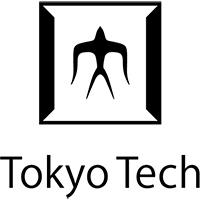东京工业大学
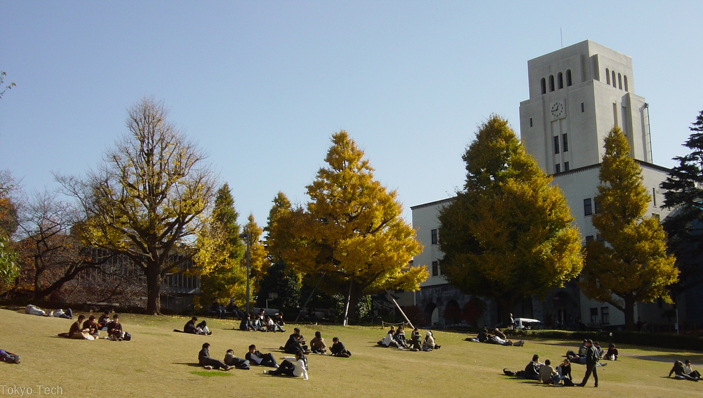
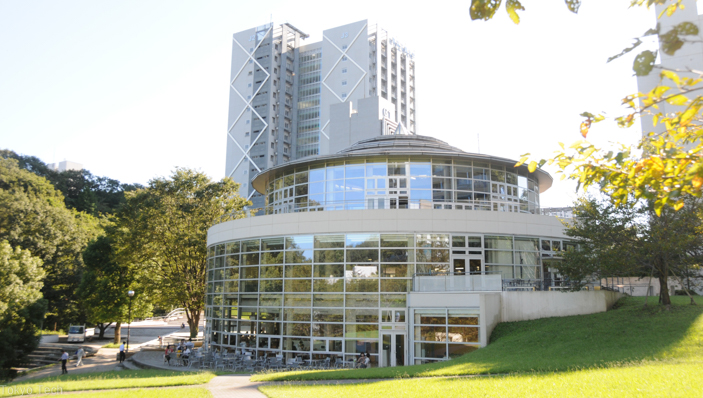
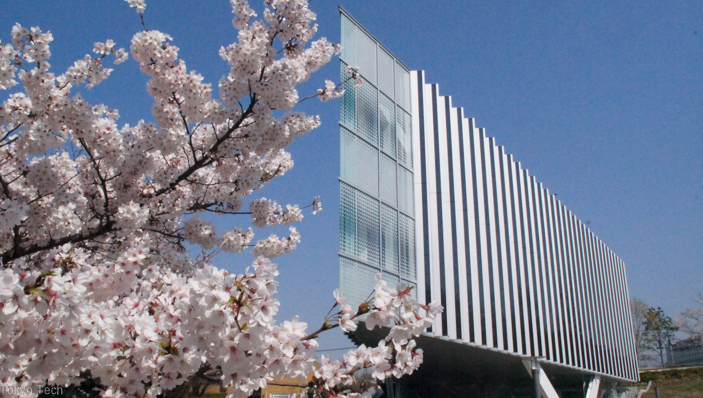
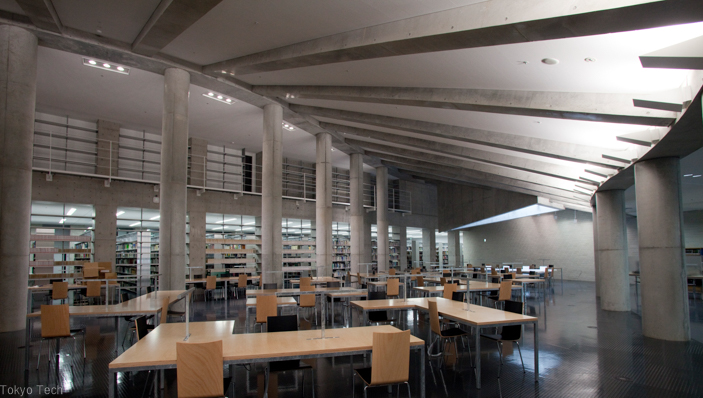
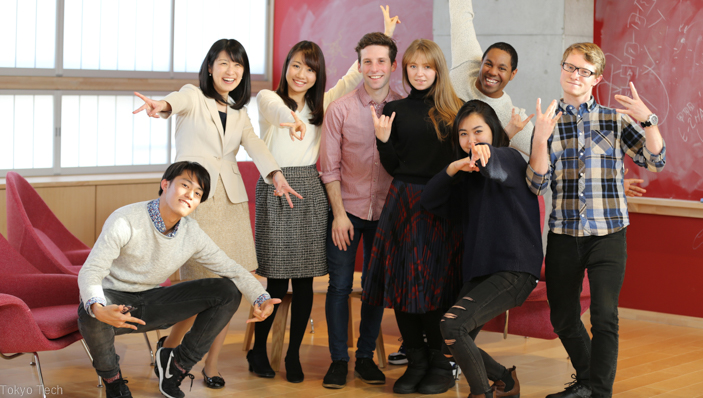
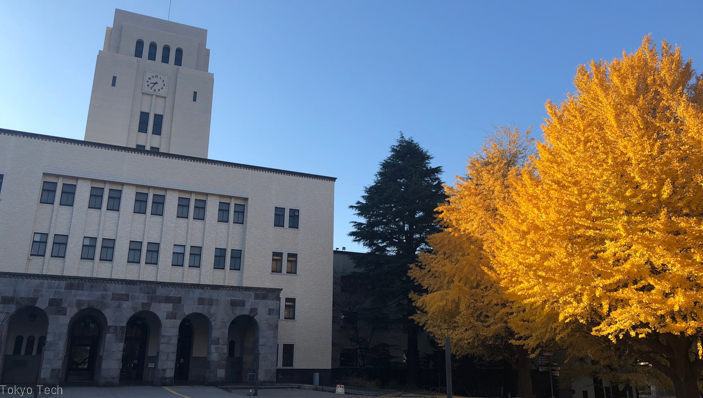

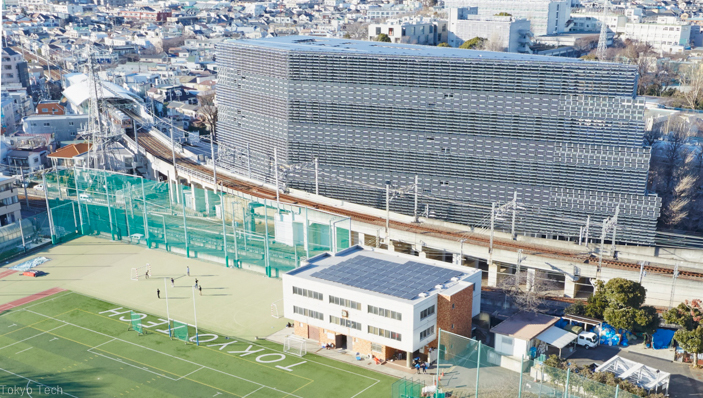
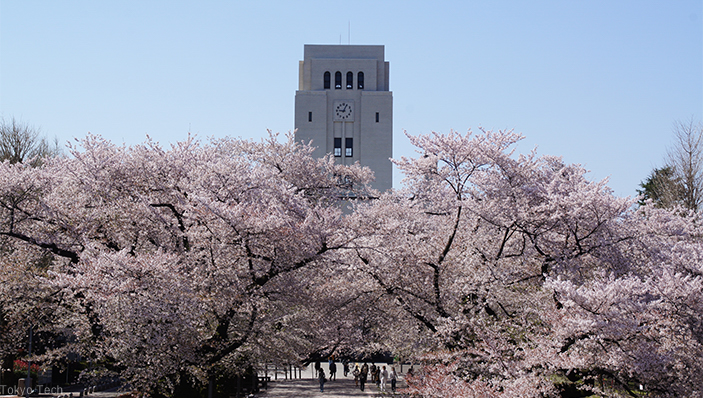
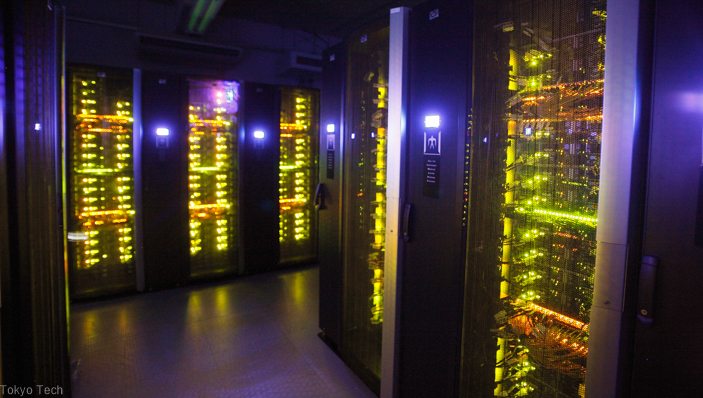
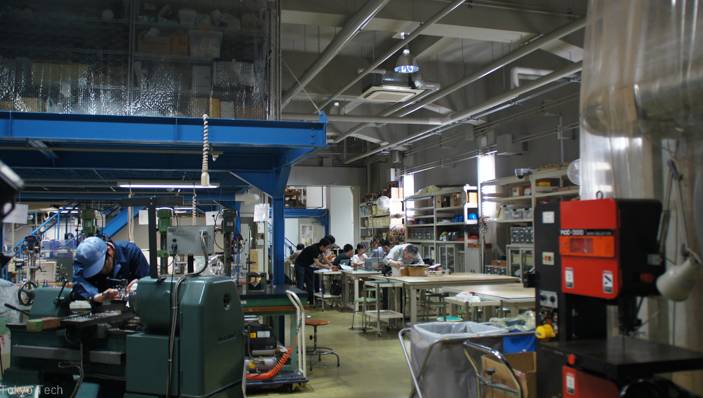
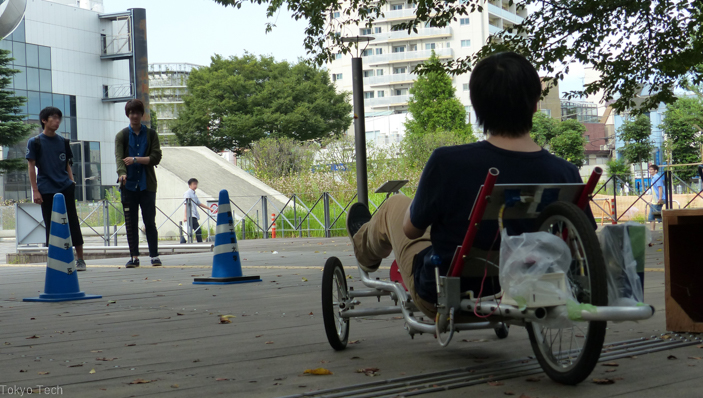












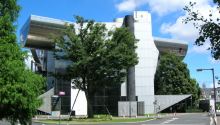





About
Tokyo Tech’s three campuses — two in Japan’s clean, vibrant capital, and one in adjacent Yokohama — provide a comfortable setting for a truly unique study experience. The long-cherished practical science and engineering education for which the Institute is known allows all students to experience the pleasures of research from an early stage. Findings from research institutes such as ELSI are fed back into curricula, and as laboratory members, students are in close contact with the world’s top researchers. Tokyo Tech's DLab unites faculty and students with the public to seek answers for a better tomorrow. The Institute’s hands-on approach is reflected in graduate employability rankings, in which Tokyo Tech consistently excels.
Tokyo Tech provides full degree programs in English at all levels. The Global Scientists and Engineers Program (GSEP) is a transdisciplinary Bachelor of Engineering program, while the International Graduate Programs (IGP) cater to those hoping to pursue more advanced science or engineering degrees in Japan. Various scholarships are available.
Library
Tokyo Tech operates library branches on Ookayama and Suzukakedai Campuses, which house approximately 800,000 books and one of the largest international collections of science and engineering periodicals in the country. Both facilities include roomy individual and group study spaces, reading spaces, and lecture and meeting rooms. The Ookayama facility, a triangular glass structure that dominates the landscape, will connect directly to the new international exchange hub, to be completed in 2020.
Hisao & Hiroko Taki Plaza
Hisao & Hiroko Taki Plaza, a large international exchange hub opening in the heart of Ookayama Campus in late 2020, will offer students more space for group work, events, and other fun.
Makerspaces
Tokyo Tech students currently enjoy the freedom to create at two makerspaces: one on Ookayama Campus, the other on Suzukakedai Campus. Both facilities provide access to the latest cutting, shaping, drilling, printing, and other experimental tools and machines.
Supercomputer TSUBAME
Tokyo Tech’s Global Scientific Information and Computing Center operates TSUBAME, the world’s greenest supercomputer, which is available for use by all Tokyo Tech students and researchers.
Environmental Energy Innovation Building
As its name suggests, the EEI Building is Tokyo Tech’s flagship hub for research in energy technology and system design. Covered by over 4,500 solar panels, this building produces roughly the amount of energy it consumes. Its research offices and experimental laboratories alternate floors so that researchers and students can easily move between both.
Sports facilities
The Ookayama Campus Sports Center includes a large outdoor sports ground, an indoor sports arena, a heated swimming pool, a martial arts hall, and a weight training room. Tennis courts, Japanese archery courses, and other activity areas are also spread around campus.
Tech Tech Nursery
Tokyo Tech established Tech Tech Nursery in 2017 to increase support for students and researchers with young children. Located on Ookayama Campus, the nursery contributes to the local community while welcoming parents from around the world to the Institute.
Convenience & safety
Consistently ranked one of the safest cities in the world, Tokyo is an ideal place to live and study. The megacity’s outstanding transportation system connects Tokyo Tech’s campuses with all major residential areas and activity hubs, and provides easy access to several airports and rural Japan when you need a quick escape from the hustle and bustle.
Accommodation
Over a dozen dormitories in the Tokyo metropolitan area provide accommodation for Tokyo Tech students. In addition, shared houses with other Japanese and international tenants are available all over the city. For more information, contact Tokyo Tech Housing Support.
Food
Tokyo Tech’s on-campus cafeterias provide students and researchers with healthy, tasty, affordable meals that satisfy varying requirements. Both campuses also house co-ops that can feed those who need something on the go. Ookayama Campus is surrounded by local eateries that cater to all tastes, and most Tokyo neighborhoods have a wide spectrum of restaurants and 24-hour shops to ensure that you never go hungry.
Student clubs
Tokyo Tech has a vast range of student clubs that organize social, cultural, and other extracurricular activities both on and off campus. These activities are showcased annually at the Tokyo Tech Festival, an event that attracts roughly 50,000 visitors each year. Many new international students connect by first joining the Tokyo Tech International Student Association or the Student Association for Global Exchange.
Entertainment
Tokyo is second to none when it comes to entertainment. The city and its surroundings are a vast expanse of parks, mountains, beaches, museums, concert halls, sports stadiums, restaurants, clubs, and other entertainment venues and places of interest. Tokyo Tech’s central location ensures that students are never more than a short train ride away from their destination.
Read about experiences shared by Tokyo Tech’s past international students.
The academic year at Tokyo Tech runs from April to March.
The Global Scientists and Engineers Program (GSEP) enables qualified international students with little or no proficiency in the Japanese language to pursue a bachelor of engineering degree at the Institute. GSEP students begin their studies in April. Applications are generally accepted from early August to early September, but be sure to check GSEP admissions for each year and the GSEP website for application guidelines and other information.
Tokyo Tech’s International Graduate Programs (IGP) provide master’s and doctoral students with an opportunity to pursue advanced degrees in English. IGP students begin their studies in April or September. There are several different IGP categories with varying requirements and admission periods, so be sure to check the relevant information for each IGP category or read about experiences shared by past IGP students.
Check out some of our graduate stories on our department websites.
About
Tokyo Tech’s three campuses — two in Japan’s clean, vibrant capital, and one in adjacent Yokohama — provide a comfortable setting for a truly unique study experience. The long-cherished practical science and engineering education for which the Institute is known allows all students to experience the pleasures of research from an early stage. Findings from research institutes such as ELSI are fed back into curricula, and as laboratory members, students are in close contact with the world’s top researchers. Tokyo Tech's DLab unites faculty and students with the public to seek answers for a better tomorrow. The Institute’s hands-on approach is reflected in graduate employability rankings, in which Tokyo Tech consistently excels.
Tokyo Tech provides full degree programs in English at all levels. The Global Scientists and Engineers Program (GSEP) is a transdisciplinary Bachelor of Engineering program, while the International Graduate Programs (IGP) cater to those hoping to pursue more advanced science or engineering degrees in Japan. Various scholarships are available.
Library
Tokyo Tech operates library branches on Ookayama and Suzukakedai Campuses, which house approximately 800,000 books and one of the largest international collections of science and engineering periodicals in the country. Both facilities include roomy individual and group study spaces, reading spaces, and lecture and meeting rooms. The Ookayama facility, a triangular glass structure that dominates the landscape, will connect directly to the new international exchange hub, to be completed in 2020.
Hisao & Hiroko Taki Plaza
Hisao & Hiroko Taki Plaza, a large international exchange hub opening in the heart of Ookayama Campus in late 2020, will offer students more space for group work, events, and other fun.
Makerspaces
Tokyo Tech students currently enjoy the freedom to create at two makerspaces: one on Ookayama Campus, the other on Suzukakedai Campus. Both facilities provide access to the latest cutting, shaping, drilling, printing, and other experimental tools and machines.
Supercomputer TSUBAME
Tokyo Tech’s Global Scientific Information and Computing Center operates TSUBAME, the world’s greenest supercomputer, which is available for use by all Tokyo Tech students and researchers.
Environmental Energy Innovation Building
As its name suggests, the EEI Building is Tokyo Tech’s flagship hub for research in energy technology and system design. Covered by over 4,500 solar panels, this building produces roughly the amount of energy it consumes. Its research offices and experimental laboratories alternate floors so that researchers and students can easily move between both.
Sports facilities
The Ookayama Campus Sports Center includes a large outdoor sports ground, an indoor sports arena, a heated swimming pool, a martial arts hall, and a weight training room. Tennis courts, Japanese archery courses, and other activity areas are also spread around campus.
Tech Tech Nursery
Tokyo Tech established Tech Tech Nursery in 2017 to increase support for students and researchers with young children. Located on Ookayama Campus, the nursery contributes to the local community while welcoming parents from around the world to the Institute.
Convenience & safety
Consistently ranked one of the safest cities in the world, Tokyo is an ideal place to live and study. The megacity’s outstanding transportation system connects Tokyo Tech’s campuses with all major residential areas and activity hubs, and provides easy access to several airports and rural Japan when you need a quick escape from the hustle and bustle.
Accommodation
Over a dozen dormitories in the Tokyo metropolitan area provide accommodation for Tokyo Tech students. In addition, shared houses with other Japanese and international tenants are available all over the city. For more information, contact Tokyo Tech Housing Support.
Food
Tokyo Tech’s on-campus cafeterias provide students and researchers with healthy, tasty, affordable meals that satisfy varying requirements. Both campuses also house co-ops that can feed those who need something on the go. Ookayama Campus is surrounded by local eateries that cater to all tastes, and most Tokyo neighborhoods have a wide spectrum of restaurants and 24-hour shops to ensure that you never go hungry.
Student clubs
Tokyo Tech has a vast range of student clubs that organize social, cultural, and other extracurricular activities both on and off campus. These activities are showcased annually at the Tokyo Tech Festival, an event that attracts roughly 50,000 visitors each year. Many new international students connect by first joining the Tokyo Tech International Student Association or the Student Association for Global Exchange.
Entertainment
Tokyo is second to none when it comes to entertainment. The city and its surroundings are a vast expanse of parks, mountains, beaches, museums, concert halls, sports stadiums, restaurants, clubs, and other entertainment venues and places of interest. Tokyo Tech’s central location ensures that students are never more than a short train ride away from their destination.
Read about experiences shared by Tokyo Tech’s past international students.
The academic year at Tokyo Tech runs from April to March.
The Global Scientists and Engineers Program (GSEP) enables qualified international students with little or no proficiency in the Japanese language to pursue a bachelor of engineering degree at the Institute. GSEP students begin their studies in April. Applications are generally accepted from early August to early September, but be sure to check GSEP admissions for each year and the GSEP website for application guidelines and other information.
Tokyo Tech’s International Graduate Programs (IGP) provide master’s and doctoral students with an opportunity to pursue advanced degrees in English. IGP students begin their studies in April or September. There are several different IGP categories with varying requirements and admission periods, so be sure to check the relevant information for each IGP category or read about experiences shared by past IGP students.
Check out some of our graduate stories on our department websites.
Available programs
University highlights
- 2012#65
- 2014#66
- 2015#68
- 2016#56
- 2017#56
- 2018#56
- 2019#58
- 2020#=58
- 2021#56
- 2022#56
- 2023#55
- 2024#=91
- 2025#=84
- 2026#85
Campus locations
Ookayama Campus,
2-12-1 Ookayama , Tokyo , Japan , 152-8550
Tamachi Campus,
3-3-6 Shibaura , Tokyo , Japan , 108-0023
Suzukakedai Campus,
4259 Nagatsuta-cho , Yokohama , Kanagawa , Japan , 226-8503

